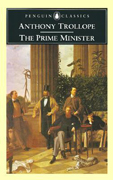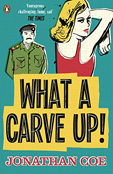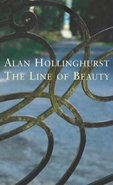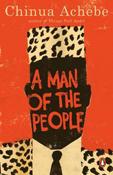English politics has had a couple of interesting weeks after the government tried to get one of its MPs off the hook for benefiting financially in breaking the rules of parliament. Even loyal newspapers had ‘Sleaze’ over their front pages and the Prime Minister was compelled to reassure the world that Britain is not a corrupt country. Meanwhile it was revealed that Geoffrey Cox has earned about £5m over the last few years as a barrister while simultaneously conducting his hobby of being an MP.
The Standards in Public Life which apply to MPs arose out of the ‘cash for questions’ scandal in the 1990s, but of course corruption and politics have been bedfellows for much longer than that – power corrupts, as the old saying goes.
 Therefore it is not surprising that politics and its machinations have often been the subject of literature. You could go back to the 19th century and read Anthony Trollope’s The Prime Minister, where the powerful man in question is eventually brought down by a combination of political and social ambition, even though this Prime Minister, unlike Boris Johnson, is morally scrupulous.
Therefore it is not surprising that politics and its machinations have often been the subject of literature. You could go back to the 19th century and read Anthony Trollope’s The Prime Minister, where the powerful man in question is eventually brought down by a combination of political and social ambition, even though this Prime Minister, unlike Boris Johnson, is morally scrupulous.
 A couple of novels focus on the Thatcherite 1980s, whose brash prioritising of money now seems rather quaint. Jonathan Coe’s What a Carve-Up! is a roaringly funny satire on those times, featuring a revolting MP called Henry Winshaw, who idolises Margaret Thatcher from a distance. Winshaw’s various actions create disasters for other people and his whole family is marked by ‘naked, clawing, brutish greed.’ To show how things have not changed much, politics in the novel is dominated by various powerful interest groups, like the banks, the media, and the arms trade.
A couple of novels focus on the Thatcherite 1980s, whose brash prioritising of money now seems rather quaint. Jonathan Coe’s What a Carve-Up! is a roaringly funny satire on those times, featuring a revolting MP called Henry Winshaw, who idolises Margaret Thatcher from a distance. Winshaw’s various actions create disasters for other people and his whole family is marked by ‘naked, clawing, brutish greed.’ To show how things have not changed much, politics in the novel is dominated by various powerful interest groups, like the banks, the media, and the arms trade.
 The same period is the focus on Alan Hollinghurst’s Booker Prize-winning The Line of Beauty. In this novel, Margaret Thatcher actually appears and the political world of her premiership is augmented by Hollinghurst’s interest in other aspects of that time, particularly homosexuality and AIDS. The infamous Clause 28, a law banning ‘the promotion of homosexuality’ was introduced in 1988 under Thatcher’s government.
The same period is the focus on Alan Hollinghurst’s Booker Prize-winning The Line of Beauty. In this novel, Margaret Thatcher actually appears and the political world of her premiership is augmented by Hollinghurst’s interest in other aspects of that time, particularly homosexuality and AIDS. The infamous Clause 28, a law banning ‘the promotion of homosexuality’ was introduced in 1988 under Thatcher’s government.
 And then there’s House of Cards, which many of you will know from Netflix, but which was originally a novel by Michael Dobbs. It opens the lid on ambition, on scheming and backstabbing among political foes and even allies as the Machiavellian Chief Whip Francis Urquhart masterminds his own route to the top job. It was first televised in 1990 by the BBC, brilliantly, with Ian Richardson playing Urquhart, and introduced the phrase ‘I couldn’t possibly comment’ to the nation. Stylistically, it made liberal use of confidential asides to camera, also a feature of the Netflix American adaptation, as seen in this clip:
And then there’s House of Cards, which many of you will know from Netflix, but which was originally a novel by Michael Dobbs. It opens the lid on ambition, on scheming and backstabbing among political foes and even allies as the Machiavellian Chief Whip Francis Urquhart masterminds his own route to the top job. It was first televised in 1990 by the BBC, brilliantly, with Ian Richardson playing Urquhart, and introduced the phrase ‘I couldn’t possibly comment’ to the nation. Stylistically, it made liberal use of confidential asides to camera, also a feature of the Netflix American adaptation, as seen in this clip:
 Going beyond UK politics, you could turn to Chinua Achebe’s brilliant satire A Man of the People, where a young school teacher becomes embroiled in politics. Odili comes under the influence of Chief Nanga, a former teacher who is now the powerful Minister of Culture. Taken under Nanga’s wing, Odili is soon part of the deeply corrupt world, enjoying all its privileges until he has an awakening that eventually leads him to challenge Nanga on the political stage. In an eerie foreshadowing of Nigerian political events, the novel ends with a military coup.
Going beyond UK politics, you could turn to Chinua Achebe’s brilliant satire A Man of the People, where a young school teacher becomes embroiled in politics. Odili comes under the influence of Chief Nanga, a former teacher who is now the powerful Minister of Culture. Taken under Nanga’s wing, Odili is soon part of the deeply corrupt world, enjoying all its privileges until he has an awakening that eventually leads him to challenge Nanga on the political stage. In an eerie foreshadowing of Nigerian political events, the novel ends with a military coup.